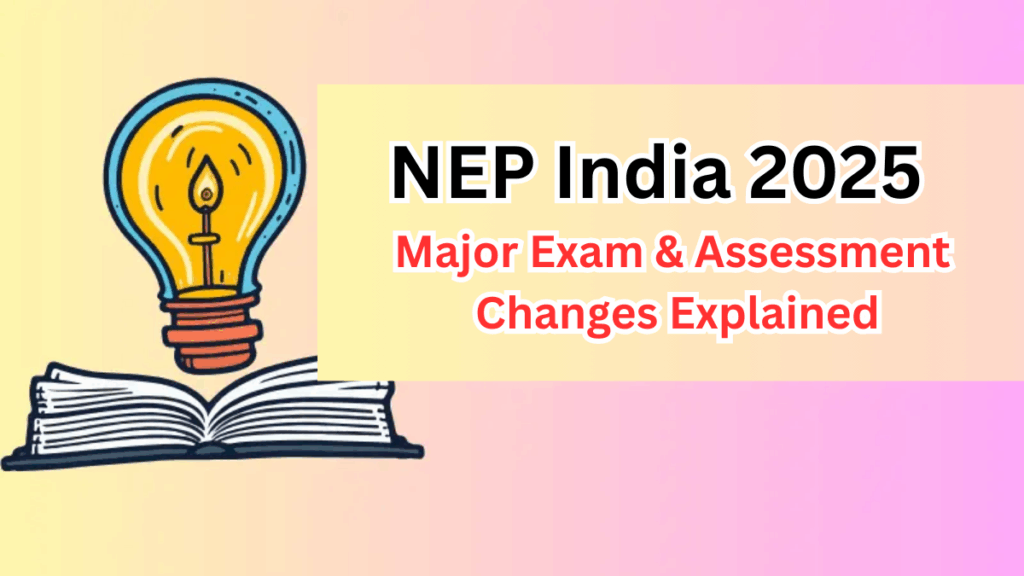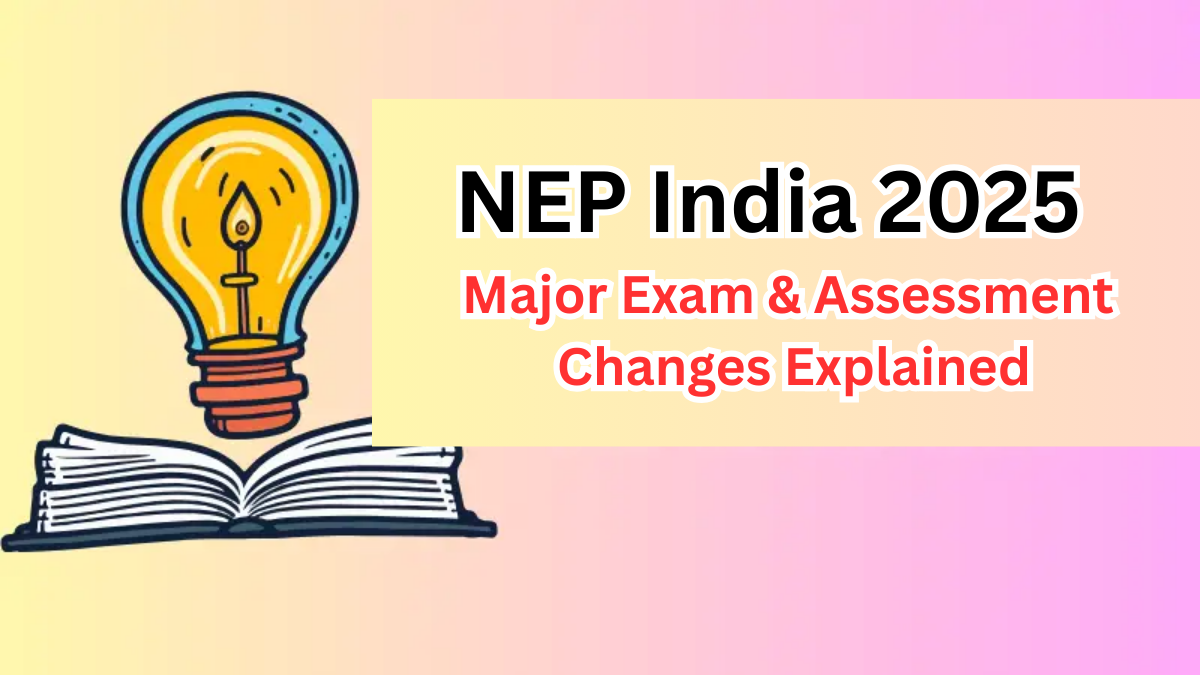The National Education Policy (NEP) India 2025 promises a transformative approach to learning, teaching, and assessment across schools and higher education institutions. One of the most talked-about changes revolves around exam patterns and assessment methods, aiming to make education more student-centric, skill-based, and holistic.
Here’s a closer look at the major changes under NEP India 2025 and what they mean for students, teachers, and parents.

Key Highlights of NEP India 2025
-
Shift to Holistic Assessments: Emphasis on critical thinking, creativity, and conceptual understanding over rote memorization
-
Reduced High-Stakes Exams: Board exams will focus on core competencies rather than testing everything learned
-
Multiple Assessment Formats: Inclusion of project work, oral presentations, practicals, and peer assessments
-
Periodic and Formative Assessments: Continuous evaluation will replace the pressure of single-sitting exams
New Assessment Rules for Schools
NEP India 2025 introduces New Assessment Rules aimed at reducing stress and making learning more meaningful. Here’s a breakdown:
| Feature | Current System | NEP India 2025 Changes |
|---|---|---|
| Exam Type | Mostly summative | Combination of formative & summative |
| Subjects | Fixed curriculum | Flexibility with core & elective subjects |
| Evaluation | Marks-focused | Grades with qualitative feedback |
| Frequency | Annual exams | Multiple assessments throughout the year |
| Skills Tested | Knowledge recall | Critical thinking, problem-solving, creativity |
Why this matters: Students will no longer be judged solely by marks. Instead, their understanding, application of knowledge, and skill development will take center stage.
Key Changes in Higher Education Assessments
-
Semester Flexibility: Universities may adopt modular courses and credit-based evaluations
-
Project and Research-Oriented Learning: Emphasis on real-world applications rather than memorization
-
Integrated Assessments: Combination of online quizzes, assignments, and classroom participation
-
Multiple Entry-Exit Options: Students can earn certificates, diplomas, or degrees based on completed credits
Advantages of the New Assessment Rules
-
Reduces student stress and exam anxiety
-
Encourages learning beyond textbooks
-
Promotes skill development relevant to the 21st-century workforce
-
Supports personalized learning paths based on student strengths
Challenges to Consider
-
Teachers need training in new assessment methods
-
Schools require updated infrastructure for project and skill-based learning
-
Students and parents need awareness about qualitative evaluation methods
FAQs
Q1. When will the new assessment rules be implemented in schools?
A1. The NEP India 2025 assessment changes are expected to roll out gradually from the 2025–26 academic session, with schools receiving clear guidelines on implementation.
Q2. Will board exams still exist under NEP India 2025?
A2. Yes, board exams will continue but with a focus on competency and understanding, incorporating project-based and application-oriented evaluation.
Q3. How will students be graded under the new system?
A3. Students will receive a combination of grades and qualitative feedback, highlighting their strengths, areas of improvement, and skill development.
Q4. Will NEP India 2025 assessment changes apply to higher education too?
A4. Absolutely. Universities will also follow the new assessment framework, which includes modular courses, credit-based evaluations, and integrated assessment methods.
NEP India 2025 and its New Assessment Rules represent a bold step toward transforming India’s education landscape. By focusing on holistic development, skill-based learning, and continuous evaluation, students can enjoy a more meaningful and less stressful educational journey.
Click here to learn more
